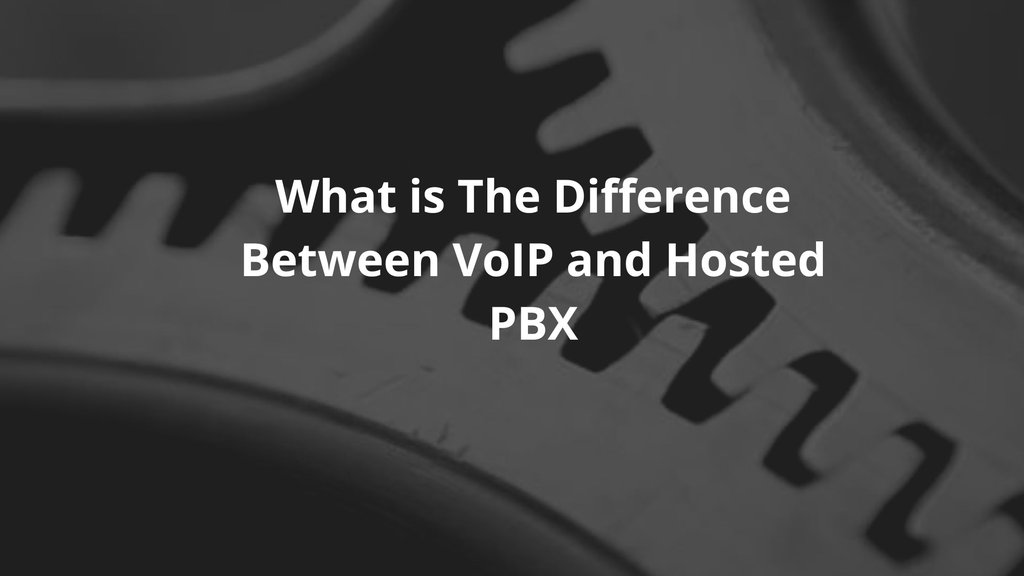
What is The Difference Between VoIP and Hosted PBX
Effective communication is of utmost importance in today’s business environment. Traditional phone lines are today considered as obsolete since most of the companies are looking for more feature-rich and resource-efficient alternatives. Two of the common alternatives are Hosted Private Branch Exchange (PBX) and Voice over Internet Protocol (VoIP). To help you make the right choice in the technology that is fitting to the demands of your company, this article will examine and compare both technologies stressing their merits and demerits.
Key Differences Between VoIP and Hosted PBX
Let's start by defining what hosted PBX and VoIP stand for:
- VoIP (Voice over Internet Protocol): Rather than base on conventional telephone lines; imagine voice calls being sent through data packets that travel over the internet. That’s the beauty of VoIP! It allows for making and receiving call via a broadband internet connection.
- Hosted PBX or Private branch exchange systems can be considered as virtual switch boards offered over cloud. It manages all the telephone calls made by the organization and offers some features that an expensive on premises PBX system would provide but without the initial capital expenditure and ongoing maintenance headaches.
Let's now examine more closely what makes them unique:
Underlying Technology
VoIP and hosted PBX both enable people to voice call each other, but the technologies which support them are different. With VoIP, users make long-distance calls without having to pay the same exorbitant price for voice signals since voice is converted to data packets and sent via the internet. On the other hand, a hosted PBX calls for no physical hardware installation since it employs VoIP in the transmission of calls and operates from the internet.
For instance, imagine a large real estate firm with intelligent agents who work on the go. With VoIP, agents are able to dial clients and fellow employees using the internet on their laptops or cell phones.
Lawyers can conduct legal work from anywhere thereby eradicating any geographic limits and effectuating seamless communication.
Deployment Model
There is a limitation of VoIP and hosted PBX in that they have different deployment models. VoIP is basically cloud consisting of a call service from which users can work remotely from any distance. Hosted PBX, unlike VoIP, may be host or on premise based, where the premise based requires some hardware and system configuration of the exotic installation.
For instance, fast-paced marketing agency in the phase of growth would need a flexible communication platform. Worrying that infrastructure would not cope when they began to grow up a team, they just chose a cloud-based VoIP services and easily added more users without adjusting the network or purchasing extra equipment.
Scalability and Flexibility
This is especially true for businesses that envisage growth. This is where VoIP stands out. With a VoIP system, it is easy to add or remove users and usually only takes a couple of clicks on the web interface of the provider. On-site systems may be able to scale in, for instance, by adding more servers but this might entail additional hardware purchase and configuration which can be costly and cumbersome, hosted PBX may also offer scaling facilities, especially when used together with other cloud-based functionalities.
A communications system that can evolve in consonance with the growth curve of a startup is very important. With a VoIP solution, they can start with little and as many employees and clients as possible being added within a short time without the need to change their communication set up at a great cost.
Simplify Your Business Communication
Switch to Hosted PBX for seamless, scalable, and reliable phone services
Benefits and Drawbacks of VoIP
Advantages of VoIP
- Cost-Effectiveness: Most of the time VoIP services are less expensive when it comes to domestic and international calls and the installation costs are also lower.
- Flexibility Ideal for the purpose of working remotely as users can make the call using several devices such as a computer, IP phone or a smartphone.
- Advanced Features: Many VoIP systems offer complimentary features such as call monitoring, sending voicemail messages to emails and video calling.
Disadvantages of VoIP
- Internet Dependency: VoIP is also quite limited to reliable internet access and in cases where it is poor, calls may be disconnected or quality greatly compromised.
- Security Risks: Due to the fact that VoIP is based on the internet, it is susceptible to various forms of attack unless relevant safety precautions are taken.
Benefits and Drawbacks of Hosted PBX
Advantages of Hosted PBX
- Reliability: For the most part, especially in hosted PBX architectures, the cloud is known for dependable performance and very high up-time. System uptime and upkeep are the responsibility of the service provider.
- Security: Most types of hosted PBX services include advanced additional features such as data encryption, steps that help to prevent information loss, which are aimed at enhancing the security of corporate communications.
- Professional Management: With hosted PBX, you take the help of the service provider for the system maintenance and management.
You can let your IT team focus on the core needs of your business.
Disadvantages of Hosted PBX
- Dependency on the Service Provider: Your business is exposed to the risks associated with the service provider which includes among many others, the performance and the uptime guarantees. Should the provider experience downtime interrupted services, your voice communication system may be compromised.
- Potentially Higher Costs: Hosted PBX systems with on-premises installation might demand higher costs than VoIP. Albeit cloud based hosted PBX may be the cost-effective solution.
While hosted PBX and VoIP systems are both beneficial to business communication, both hosted PBX and VoIP systems will have their pros and cons depending on the business situation. For geographical dispersed entities able to change operational configuration, do not have money or time constraints, etc., VoIP will be the solution. There is one caveat, however: for VoIP, Internet connectivity must be perfect.
In contrast, it gives reliability without compromising on management. For organizations that are security-oriented and very few technical competences is desired to be maintained, this can be very appropriate. However, early costs and adaptability might be drawbacks.
While the business environment is undergoing a digital transformation, it is necessary to understand these nuances in order to select the right communication technology. VoIP and other cloud-based solutions are gaining ground, which suggests that people are driven by flexibility and economic considerations.
Not sure which choice is best for your business? Anticlockwise’s team of professionals is available to assist you! To discuss your options and find the ideal solution for your communication needs, get in touch with us today for a free consultation.

Managing Director
